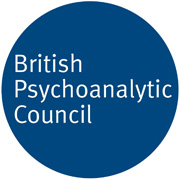Feedback and Testimonials from clients
Our son saw Sheila after he started to have increasingly angry outbursts which made him very upset. He sometimes had trouble sleeping and found it difficult to fall asleep alone. Sheila took time to understand him and his needs, and helped him to understand why he might be feeling that way. Following a weekly programme of therapy he was able to learn the skills he needed to manage his feelings and calm himself down. Sheila also provided us with guidance so we were better able to provide the support he needed. We have our bright, fun loving and calm son back, and we are eternally grateful to Sheila for her help.
Mr and Mrs R
Thank you very much for your help and support to our family over the years! We all appreciate your input and contribution to directing our son's path.
Mrs C
Thank you so much for guiding me through this very difficult and confusing time in my life. You have truly helped me. I am so grateful. Good luck in everything you achieve in the future.
My love always
Miss T
I was tired of asking for help for my son and that I was only getting appointments for people to see me to discuss it but nobody actually wanted to see my son.
I remember when I first met Sheila Levi as if it was yesterday. The first thing I told her was: if you are going to talk to me, fill a questionnaire about my son and give me leaflets then, please, do not waste your time or mine. She looked at me and replied, 'no I will not do that'. We talked and soon realised that I was with (for the first time since 2009) someone who wanted the same as me! Someone who actually wanted John to reach his full potential and maximise his chances to lead a meaningful and independent life. I remember thinking, there must be a catch here, but thankfully there wasn’t.
Sheila started to see my son regularly with us, with his Grandmother, and at his school. She guided us to look for a mainstream school that would let us do a trial with John and see how he was doing there. Then she asked us to work on his handwriting, maths and English as he had fallen very behind at his special school. We worked hard for about 6 months and, from not being able to write at all, he started to write sentences with neat handwriting, learn simple addition and subtraction, and he started to read Roald Dahl books.
Then Sheila asked us to get the school EP involved. The EP was very interested to hear about this little boy so she came fairly quickly and ran a cognitive assessment. The results revealed that John was within his age group. So I asked what should we do? Why didn't the school see that he was underachieving? But I know the answer. Special Schools have way too much trouble and way too many children to look after. Are the expectations they set geared towards the most able in a class or the least able? And if you have 12 children with very different needs and ways of learning, how can you ensure they are all reaching their full potential.
If you have a child like John, who is not demanding , who is quiet and finds it extremely hard to show his capabilities then, there is a very great chance that he will be overlooked!The question is who is out there helping these children? Helping families not to panic and monitoring how the children are doing?
John was moved to a mainstream school after all the evidence proved that at that time he was not benefiting from a special school. This time we didn't panic. We were guided by Sheila Levi and the evidence that gave us a clear idea of what to choose for the present time.Interestingly the EP agreed with Sheila, but how it took 3 years for someone to begin to investigate, assess, and monitor our son is something we cannot understand. If we hadn’t met Sheila Levi, then John would probably still be unable to write and all of the remarkable progress he has made over the last 8 to 9 months would never have happened.
Until we met Sheila Levi all the support we received was focused to help us to ‘cope’ better with the situation, to give us a ‘break’ in a way. That is not the only thing we need. We need professionals to directly help children like our son by supporting them catching up with normal development.
Mrs S




